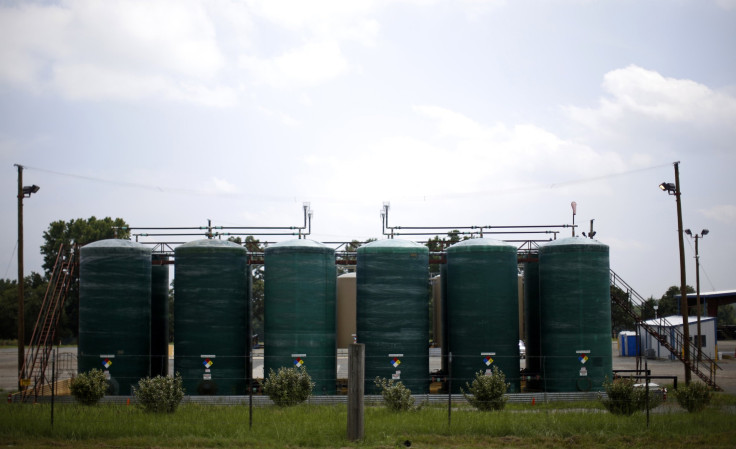Texas Regulators Strengthen Fracking Wastewater Disposal Rules Following North Texas Earthquake Swarm

The U.S. oil and gas boom is prompting concerns in several states about earthquakes related to wastewater disposal wells. The latest response comes from Texas, where oil and gas regulators are proposing tougher guidelines for well operators following the recent seismic outbreak in North Texas.
The changes, announced on Tuesday, would require oil and gas companies to disclose more details when applying for permits for underground injection wells, which house large volumes of wastewater from drilling operations like fracking. If the Texas Railroad Commission votes for final approval, firms would have to supply data from the U.S. Geological Survey about area fault lines, past earthquake activity and geologic mapping, the Dallas Morning News reported.
More than 30 registered earthquakes rocked the Dallas-Fort Worth area from November to January, causing damage to homes and properties and raising safety concerns. State officials have come under intense scrutiny since then to address the rash of sudden and unexpected seismic activity.
Federal geologists say that while most of the country’s thousands of wastewater wells don’t cause earthquakes, some can. Depending on the volume and location, wastewater injections can pry fault lines apart and cause them to “slip,” which triggers earthquakes. The Railroad Commission has said that there’s no conclusive link between the recent earthquakes and disposal wells. Southern Methodist University scientists have set up monitors to track local earthquakes, but they say the results could be years off, the Dallas Morning News noted.
“Whether there is a definitive link or not between disposal wells and seismic activity in Texas has not been determined,” Railroad Commission spokeswoman Ramona Nye told the Fort Worth Star-Telegram. “As our agency continues to work with the scientific community to coordinate an exchange of information ... we have seen a need for laying the groundwork for some basic industry best practices.”
In Oklahoma, however, geologists are increasingly convinced that the swarm of earthquakes now rippling across the state is man-made. That has prompted the Oklahoma Corporation Commission, the state’s public utility regulator, to stop approving permits for wells in earthquake-prone areas without additional information from applicants. The commission will also start requiring operators to supply real-time data related to well pressure and volumes so that scientists can better study the link between seismic activity and wastewater injections.
So far this year, Oklahoma has experienced more than 290 earthquakes of magnitude 3.0 or greater, up from an average of just two a year before the state’s oil and gas boom began in 2008, according to the Oklahoma Geological Survey. The largest, a 2011 temblor that reached a 5.7 magnitude, caused nearly $1 million in damage across the small town of Prague.
Along with tighter permitting rules, the seismic upswing is also drawing lawsuits from residents seeking compensation for property damage or personal injury related to the quakes. Last week, a Prague resident sued two-dozen energy companies seeking at least $75,000 in damages. In Dallas last December, two families filed suit against drilling companies and well operators. In Arkansas, where several minor earthquakes shook the state in 2010 and 2011, nearly 40 homeowners are suing Chesapeake Operating Inc. and BHP Billiton Ltd. (NYSE:BHP).
The new permitting proposals are unlikely to ease the concerns of environmentalists and worried residents, however. Sharon Wilson of the environmental group Earthworks said the Railroad Commission’s proposals on Tuesday “don’t go far enough in ensuring protection of Texans living near oil and gas production,” she told the Dallas Morning News. “They are neither identifying instances where specific earthquakes have occurred nor holding the responsible party liable for damages caused to the property owners,” she said.
© Copyright IBTimes 2024. All rights reserved.





















